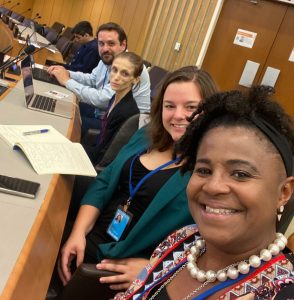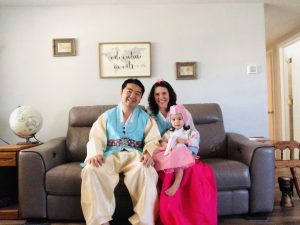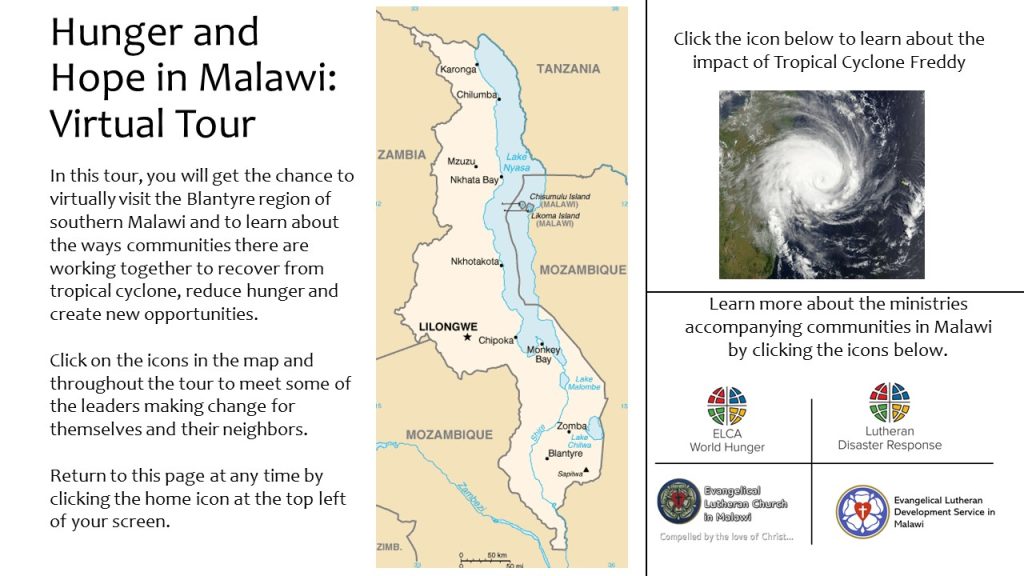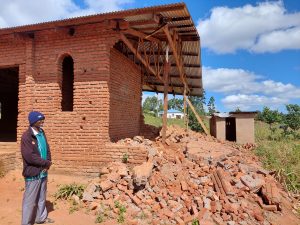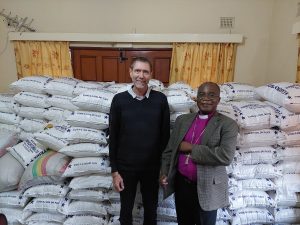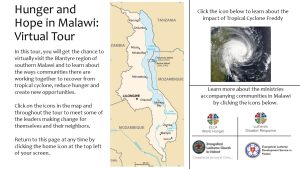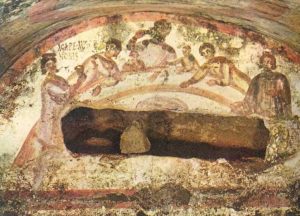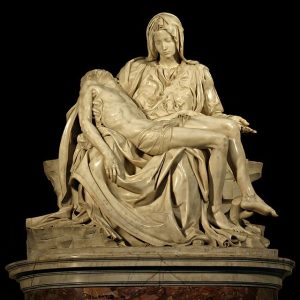For many U.S. residents reading this blog post, our ability to think soundly about the Israel-Hamas conflict has been consistently interrupted by waves of conflicting images and emotions: stories of trauma and grief from Israelis impacted by the Hamas attacks on their homes, followed almost immediately by accounts from Gaza of deaths; both moments of horror followed quickly by a outrage and ambivalence gestated over decades by a binary debate over U.S. involvement in the conflict. We can certainly feel tired to act when we pile onto these emotions the ways social media and cable news saturate our lives with every world event.
When, on the edge of exhaustion, it can be difficult to consider a Christian response, but Bishop Eaton has laid down a challenge to Lutherans: “God has called us to be a people who stand with others amid suffering.” From the Hunger Education desk, this notion boils down to two key words: scarcity and abundance. Indeed, confronted with death around the world we often turn to comfort in distractions. This is scarcity, the limitation of our own opportunity to seek justice for the other. But to see and read about 2 million people imprisoned and besieged in a warzone, while we as Western Christians have the ability to turn away? This is indeed a sign that we have the resources to participate in full, abundant life with and for our neighbors.
Both concepts have found voice for me in John 4:1-26, a moment in our Christian story when political divisions over who belongs momentarily paralyze recognition of basic human needs for sustenance and care. Both the current political discourse in the U.S. and the historical conflict between ancient Jews and Samaritans, start from an understanding that the neighbor should be mistrusted. And a mistrustful stance toward others means accepting that they don’t deserve our resources, that our abundance is, in fact, scarcity. But here, in John’s Gospel and in Gaza, we find an opportunity to view the need of the other as precisely the moment to act in accordance with our abundant life.
Mistrust, Scarcity, and Abundance in John 4:1-26
John 4:1-26’s relation here is not incidental: while on a much smaller in scale to the humanitarian disaster unfolding in Gaza, Jesus has a need for water—he had been traveling a long way and was thirsty (vv. 1-4). He asks a Samaritan woman approaching the well to draw water and she immediately draws the political battleline with a mistrustful interrogation: “How is it that you, a Jew, ask a drink of me, a woman of Samaria”; and the narrator puts the difference in bold, with, “Jews do not share things in common with Samaritans” (v. 9). Jesus is in need here and this woman has what he needs. Political differences allow her to defer or even avoid sharing the resources of her home in a moment of scarcity. Helpfully, though, this narrative opens with Jesus exposing his own vulnerability and need, and the woman eventually showing hers, making space for a gift of life-giving water, water that will end all thirst (v. 10-15).
Without a moment of vulnerability and tension, one that allows for the painful past and power politics to be exposed, we can lose sight of the real issue: abundant water. To this end, Bishop Eaton’s challenge to Lutherans to hold “tension between two truths” highlights the actual need for those of us with the privilege of resources, voice, and time: “God has called us to be a people who stand with others amid suffering.” The Samaritan woman faces a choice, as someone in need is before her face, at her very well—her home—in need of merely a drink. She can reinforce the scarcity illusion or she can stand in solidarity with another created person who needs sustenance as much as she does.
Partisan back-and-forth, “both sides are to blame” narratives, and public vitriol benefit people in power, because these things require little material resources of us as citizens: we can protect our common good(s) while blaming the other. Complaint and blame demand little of us, as Christians, while advocacy and activism require use of our resources and focus. Retreating to traditional lines of difference and tired tropes can feel easy, like reciting a script, but doing so also prevents those with privilege from seeing and treating the needs of the marginalized, the thirsty, and the hungry.
In moments of tension and discomfort, as John’s Gospel shows, we find opportunities for justice where those truly in need are seen, where myths of scarcity are banished in favor of abundance.
Abundance, Imagination, and Faith
In times and places like Israel and Palestine at this moment, belonging and hope can feel scarce. Israeli families killed in the private and public comforts of their daily lives or meant to feel fear in the very places they find routine; Palestinians killed from miles away, already imprisoned in a patch of land, under occupation, and invisible to those of us who fund Israeli bombs leveling their neighborhoods. Like many of us, I have come to understand home as something more complicated than the walls of a building—it has something more to do with the relationships, memories, and meaning that form around a particular place.
As Rev. Dr. Mitri Raheb, president of Dar al-Kalima University of Arts and Culture in Bethlehem, reminds us, to call a place like Palestine home is fraught with mourning in this “battlefield for competing empires.”[1] That is, the bombs dropped on Gaza neighborhoods is both nothing new and the result of millennia of colonial ambitions in this area. Certainly, for those of us who live in relative peace and privilege, unconscious of the violence meted out by nation-states—even our own, funding decades of war in the Middle East—Rev. Dr. Raheb’s call might seem, at first, fatalistic and a call to give into scarcity.
Instead, Rev. Dr. Raheb calls back to the faithful imagination necessary to break out of the U.S.’s current stance of “managing conflict” in Israel and Palestine through Israeli military aid,[2] to the imagination called for by faith “to have life and have it abundantly.”[3] The current stance that prizes national security over the abundant life demanded by Palestinians under occupation is the same one that makes it acceptable to cut of 2 million Gazans from food, water, and energy—while killing thousands of people in Gaza. Scarcity means rocket attacks, terrorist killings, airstrikes, ground invasions, and imprisonment.
“Security” and its accompanying violence are parts of a scarcity value system, while belonging, memory, love, and care can exist only with abundant, imaginative, faithful life. There is always room for home. Ancestors “can worship on this mountain” and “in Jerusalem” (John 4:19). We can give water from a well and “water from a spring gushing up to eternal life” (4:14). When world leaders tell us, “Security first!” our Christian response must always start with life, and life abundantly.
And I hope you and your community can respond to the crisis emerging in Israel and Gaza with abundance—whatever that looks like. Here are some places to start:
The ELCA is curating opportunities to act with your abundance here. On this page, among other things, you can…
- Support Lutheran Disaster Response’ work on the ground with your financial gifts
- Join with other ELCA members and write to your representatives in Washington (head to this link), urging:
- A cease-fire, de-escalation and restraint from all parties
- That all parties to abide by the laws of war, including the Geneva Conventions, customary international law and international human rights law
- Steps to secure immediate release of hostages and international protection for civilians.
Learning. We have numerous opportunities and a strong network of partners available to support your congregation’s reflection, discussion, and growth.
- Check out resources from the ELCA’s Peace not Walls network and begin the discussion about human rights and dignity in Palestine and Israel.
- Explore the work of our partner church, the Evangelical Lutheran Church in Jordan and the Holy Land (ELCJHL).
- Start a conversation with your congregation about adopting an abundance stance toward the economy and hunger with ELCA World Hunger’s “Hungering for Justice” study guide on Luther and the economy.
- Check out Rev. Dr. Mitri Raheb’s book, Faith in the Face of Empire (the text I referenced above). It’s well-suited for congregational reading groups. Despite being written in 2014, reflecting on the Arab Spring, the book provides a prescient voice out of Palestine in this
Dr. Peter N. McLellan is the Program Director, Hunger Education with the ELCA’s Building Resilient Communities team.
[1] Mitri Raheb, Faith in the Face of Empire: The Bible through Palestinian Eyes (New York: Orbis, 2014), 5.
[2] Raheb, Faith, 125. The 2016 ELCA Churchwide Assembly resolved that all military aid to Israel must be conditioned on the observance of human rights (CA16.05.15).
[3] Raheb, Faith, 129.

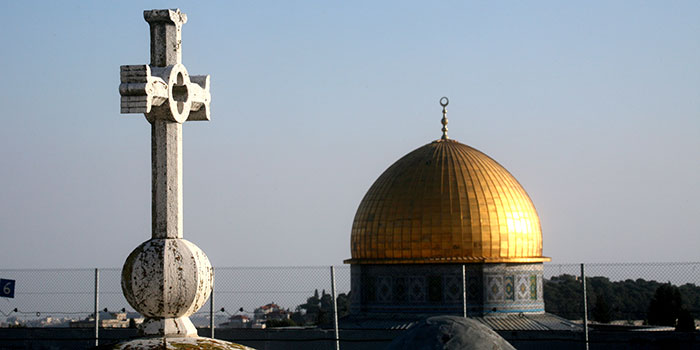
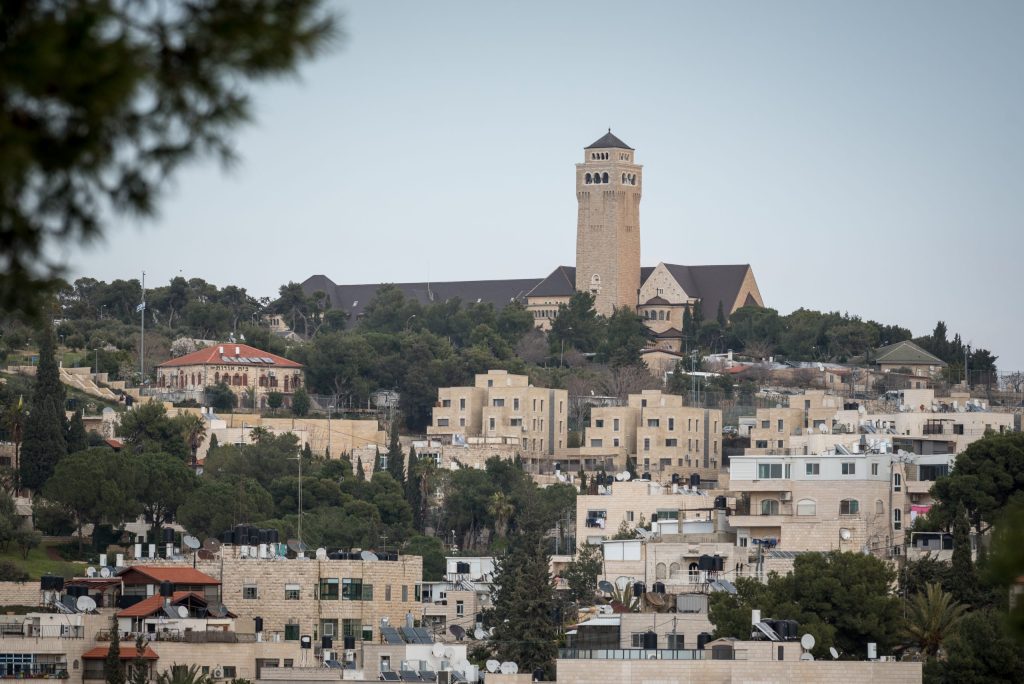
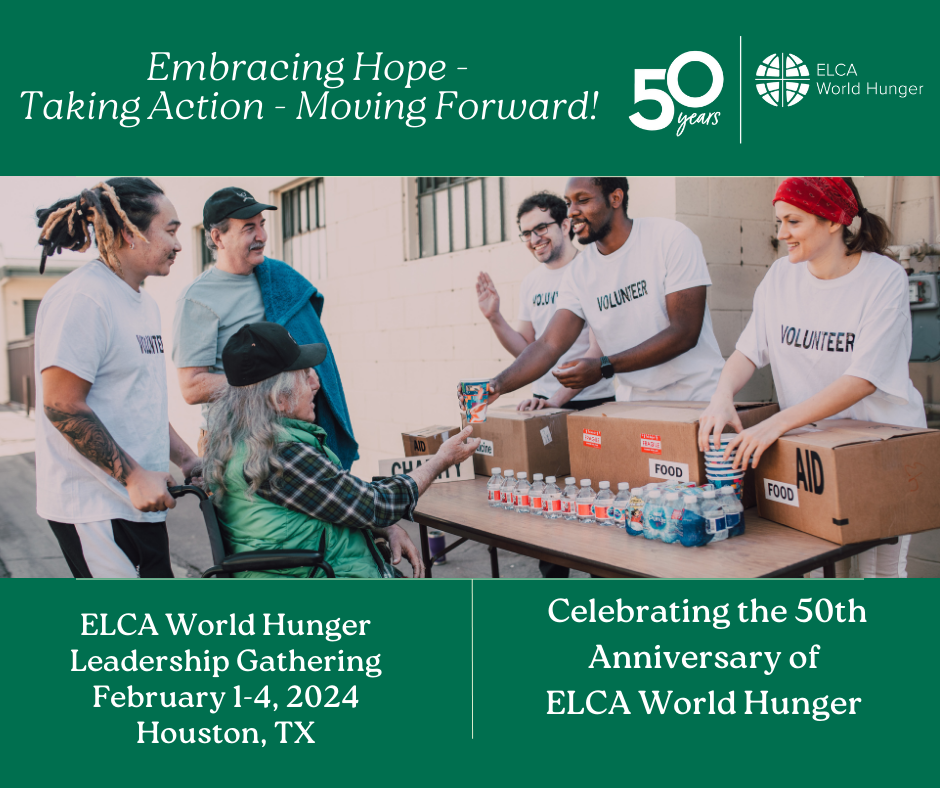
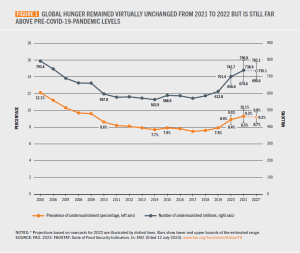
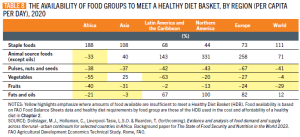
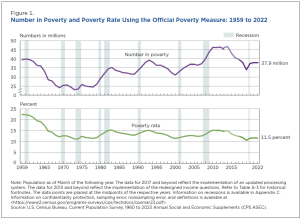
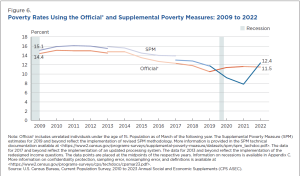
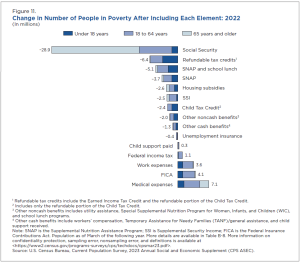
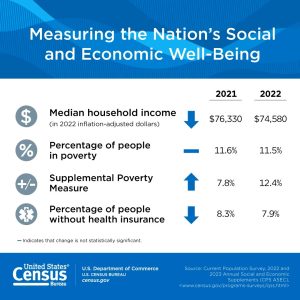
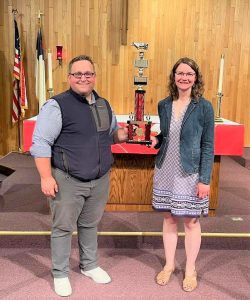 Since its charter as a Lutheran church in 1960, Calvary Lutheran Church in Perham, Minn., has always had a heart for supporting missions outside their church walls, says Associate Pastor Eric Clapp.
Since its charter as a Lutheran church in 1960, Calvary Lutheran Church in Perham, Minn., has always had a heart for supporting missions outside their church walls, says Associate Pastor Eric Clapp.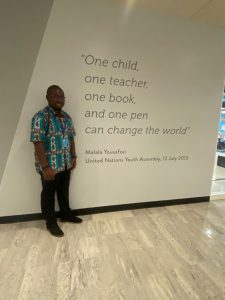
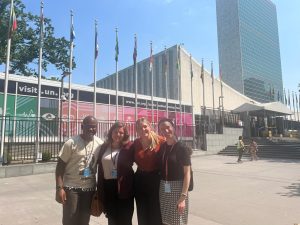
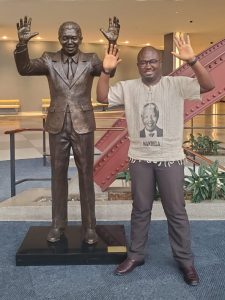
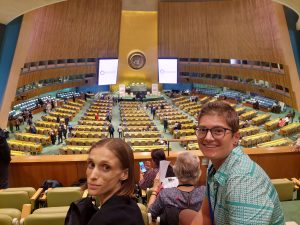
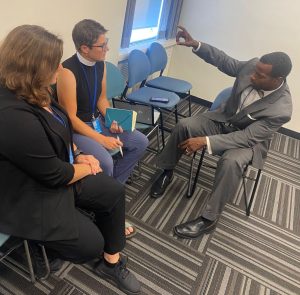
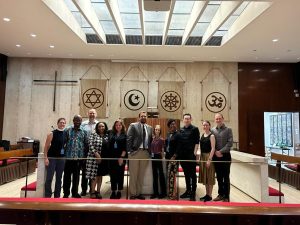 This week, four leaders from across the United States joined ELCA World Hunger and the
This week, four leaders from across the United States joined ELCA World Hunger and the 